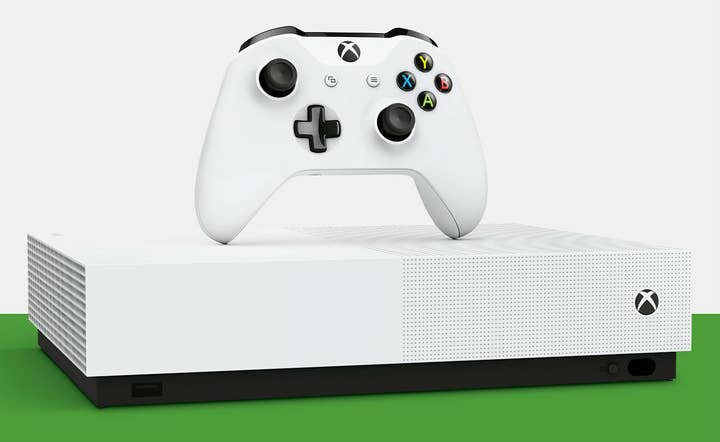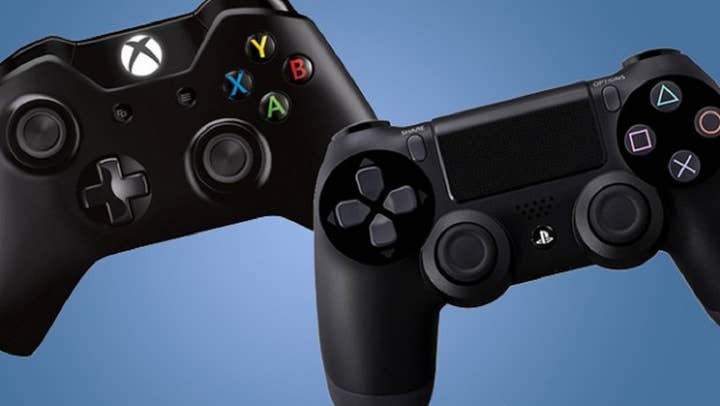Diverging paths: Sony, Microsoft and Nintendo's radically different visions | Opinion
After decades of platform holders releasing similar hardware, we should celebrate their new, wildly different visions of gaming's future
We're talking about new hardware from all of the biggest players in the console space this week -- but what different stories we're telling.
Sony undoubtedly stole most of the thunder with its unveiling of selected details of the next-generation PlayStation in a Wired interview with Mark Cerny, but new hardware from both Microsoft and Nintendo is in the spotlight as well; a cheaper Xbox One S that drops the Blu-Ray drive from the former, and a few more hints at a pair of forthcoming Switch revisions from the latter.
Mindful of the fact that this is a very early reveal and there's much we still don't know, I don't want to describe the PlayStation hardware Cerny demonstrated as "conventional," but it's certainly evolutionary. It's a console very much within the lineage of those Sony has produced so far; it will of course be embedded in a services ecosystem that few would have imagined when the original PlayStation rolled out in the mid-1990s, but at its heart this promises to be a powerful, meaningful upgrade to a console paradigm we've all known and understood for over 30 years.
"The traditional console market, as it has been for such a long time, is now in essence the PlayStation market"
By contrast, Microsoft and Nintendo are moving in quite different directions. Microsoft's removal of physical media support from the new Xbox One S is both a statement of intent and a toe in the water. It speaks to the company's vision of Xbox as a gaming platform that spans across devices, powered through a combination of local hardware and Azure cloud services, with physical Xbox consoles being just one mode of access for an Xbox "experience" that's equally at home on a laptop, a tablet or another smart device.
In such a world, the notion of physical media that you stick into a standalone console is not only retrograde, it's outright restrictive. I wouldn't go so far as to say that Microsoft's true next-gen device, whenever it appears, will dispense with physical media entirely, but it's certainly testing the waters and showing clearly where its preference lies.
Nintendo, for its part, is off doing its own Nintendo stuff -- working on new iterations of the Switch that would variously be downsized and possibly ruggedized (a more kid-friendly device than the existing hardware, in other words), and powered-up and more advanced, while also quietly slipping out news that it's working with Tencent to launch the console in the Chinese market. Nintendo has hit a formula that works exceptionally well and which allows it to build a significant market while dodging getting caught in a horsepower arms-race with the other platform holders. It's a trick the company has pulled off before, but the Switch is thus far its most successful execution of the idea.
"That makes this, in many ways, one of the most exciting times I can recall for game consoles"
Given these divergent directions, one might be forgiven that thinking Sony ends up looking a little staid; here's Nintendo and Microsoft, off reinventing what game hardware looks like, how it works and where and how we play games, while Sony toils away on a better, faster version of the same kind of box we've had under our TVs for decades.
Yet that's not really a fair or reasonable way to look at the story. If anything, it's a testament to Sony's success that it dominates the traditional console model so utterly that both its major rivals are effectively ceding that territory. There will be a next Microsoft console and a next Nintendo console, but they won't compete directly with the next Sony console; the traditional console market, as it has been for such a long time, is now in essence the PlayStation market.

That makes this, in many ways, one of the most exciting times I can recall for game consoles. After many years in which the platform holders often felt like they were releasing systems that were carbon copies of one another, separated only by vaguely different controllers, some software exclusives and a bevy of Digital Foundry graphs, we're now approaching a point where each platform holder is espousing a completely different vision of the future of video games.
"What we might be seeing -- albeit only in its earliest, tentative phase -- is effectively the end of the whole 'console war' entirely"
Those visions compete, of course; many people will find themselves musing over whether Sony's more traditional console or Microsoft's service-led multi-device console platform concept is more appealing to them. They don't, however, compete in the same way that past consoles have; many people will find a place in their lives for more than one of these different approaches to gaming, and each of them will undoubtedly open up new markets and demographics that are simply inaccessible to the others. The potential to seriously grow the console market has slackened off in recent years, but the divergent strategies of the big players will open up a world of new possibilities on multiple fronts.
Indeed, what we might be seeing -- albeit only in its earliest, tentative phase -- is effectively the end of the whole "console war" entirely. With very different visions on offer -- different audiences, different usage cases, perhaps even whole new types of software that just couldn't be done on other platforms -- the need for tribalism to sell a console as a brand, to distinguish between boxes under the TV that, honestly, everyone who isn't a gamer is just going to call "Nintendos" anyway, will fade into the background somewhat.
We could easily find ourselves in a world, not too far down the line, where platform holders find themselves more interested in the complementary parts of their ecosystems than in the competitive aspects. Weirder things have happened -- think of how the level of cooperation between Microsoft and Apple nowadays would have sounded to us back in the mid-90s. Even after the dramatic "rescue" of Apple by Microsoft in 1997, the extent to which Microsoft treats macOS and iOS as top-tier platforms today would have been unimaginable. Is a similar détente between some or all of Sony, Nintendo and Microsoft so hard to visualise?
The assumption for a long time in some parts of the industry has been that the console paradigm would disappear with a bang; an implosion of console sales and a big, messy industry collapse, with companies trying to ride it out on emergent platforms like smartphones. The success of PlayStation 4 and latterly of Switch has made it clear that the implosion, if it's coming, sure as hell isn't here yet.
Now the diverging visions of the platform holders are suggesting an entirely different way forward; not the death of the console, but the evolution of the console and the diversification of its form and concepts. And with it, perhaps, a return to the kind of market growth the core industry used to boast about in the 1990s and 2000s.

